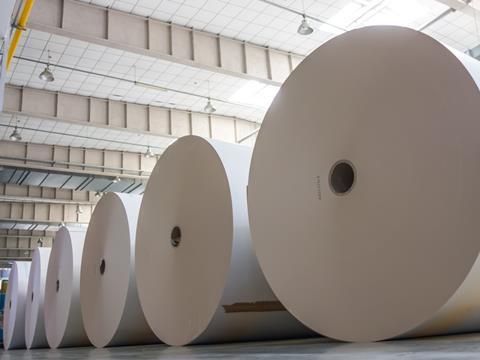
Progroup is expanding its Sandersdorf-Brehna site with a waste-to-energy plant to supply its paper factory with heat and electricity – reportedly saving around 80,000 tonnes of CO2 a year.
The new building is anticipated to generate enough energy to provide for around 50,000 family homes by thermally utilising waste materials from the paper factory, as well as the commercial and private recycling processes in the region. This is expected to generate enough steam for the plant as well as a third of its electrical equipment, with a similar ‘zero-waste’ concept already enforced at its site in Eisenhüttenstadt.
Construction will begin this month and the plant is expected to begin operating at the end of 2025.
According to Progroup, the site’s integrated circulating water treatment plant already reduces the amount of freshwater used in its production processes by 80% in comparison to conventional plants, with recovered paper impurities biologically degraded and converted into biogas to consume 10% fewer fossil resources.
“Our aim is to have zero reliance on fossil fuels and be fully carbon-neutral by 2045,” explains Maximilian Heindl, CEO of Progroup. “The new power plant will take us a significant step closer to achieving this goal.
“As a family company, we have an obligation to the generations to come. This is why with our papers and corrugated board sheets we not only manufacture eco-friendly, recyclable products, but in their production – including generating energy – we employ efficient solutions that conserve resources.”
Smurfit Kappa recently teamed up with the HYFLEXPOWER consortium to install an integrated hydrogen gas turbine demonstrator at Smurfit Kappa’s Saillat paper mill – a successful completion of the first stage of its research project on renewable energy.
Perstorp previously invested in a project set to save an annual 1.1 billion litres of fresh water at its Stenungsund facility by supplying it with wastewater from a nearby municipal treatment plant; Ardagh Glass Packaging – Europe is also financing two water reduction projects based in Sweden and Poland in a bid to cut the company’s water usage by a third.














No comments yet